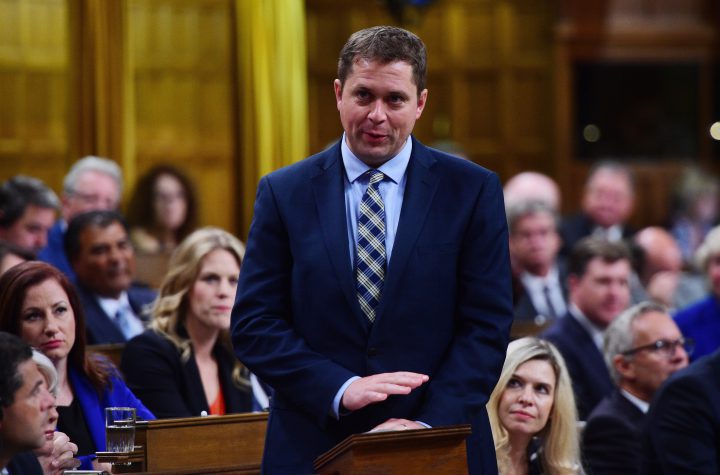Are tax hikes no longer the third rail of Canadian politics?

The political value of keeping taxes low seems to have been replaced by the need to make taxes “fair” — which, in the Liberals’ case, means raising them on groups they think won’t get public sympathy.
The Tories have been hammering the government on their proposal to raise taxes on small business owners for over a month — with no real evidence that it’s moved the polling an inch in either direction. The latest Nanos report puts the Liberals at 39 per cent, the Tories at 33, and the NDP at 15. While one Forum research poll puts the Conservatives in the lead, it’s the outlier among a host of surveys which show the Liberals consistently maintaining the pole position.
The Liberals are banking on the fact that most Canadians probably think that doctors, lawyers and business owners make enough money already, and that small business tax increases will not directly affect people who are employees and not entrepreneurs. Such increases would affect the average Canadian indirectly, of course, in the form of higher prices, lost jobs and lower government revenue, particularly if business owners decamp to more tax-friendly jurisdictions, as some may already be doing.
In previous years, these taxpayers would have received more sympathy because other voters would think “today them, tomorrow me.” But that was before the Liberals became the party of the middle class, crushing taxpayer solidarity with pledges to create a tax system that is “fairer” for the middle class than for the dastardly few in the “one per cent.”
New research shows, however, that nothing could be further from the truth. A new study from the Fraser Institute shows that when you account for both rate cuts and tax credits eliminated under the Liberals’ watch, eight in 10 middle-class families actually pay more tax than under the previous government’s rules.
LISTEN: Charles Lammam of the Fraser Institute joins Tasha Kheiriddin on AM640
Those changes include eliminating income-splitting and credits for public transit, education and textbooks, and children’s sports and arts. When those are factored in, they more than offset the tax reduction for the average middle-class family, which earns between $77,000 and $108,000 a year. While those families receive a direct income tax reduction and indirect abatement of $256, they lose credits worth $1,096, for a net tax increase of $840 a year, or (ironically) about one per cent of their income.
And that bill will go up, thanks to more changes coming into effect next year. “This federal government has mandated that starting next year all the provinces have to have a carbon tax or some form of carbon pricing,” said Lammam. “In addition, this government has led an expansion of the Canada Pension Plan … This is going to be a significant increase in the form a payroll taxes these same middle-class families pay.”
So much for “sticking it to the one per cent.” But the myth persists that this government cares for the middle class, and that its tax changes will hit only those who can “afford” them — the wealthy.
“The Conservatives have fallen into the trap of defending a group of privileged Canadians and allowing themselves to be boxed in against the middle class,” writes conservative pundit Jaime Watt. He’s right. But that’s only because people aren’t focusing on the big picture — and crunching all the numbers.
It also doesn’t help that the biggest defender of tax cuts today is U.S. President Donald Trump — a figure the vast majority of Canadians believe is arrogant, intolerant, dangerous and indifferent to ordinary people. To many observers, Trump’s tax “reform” looks like tax cuts for the rich and corporate America, tarnishing the Republican brand on the issue. That makes it hard for conservatives in any country to beat the drum for tax cuts.
If the opposition Tories want taxes to be a winning issue once again, they have to reframe the conversation. They have to debunk the Liberals’ “tax fairness” claims and expose this tax reform as what it really is: a shell game that gives with one hand while taking away with the other. But they also have to go further, by developing their own narrative and plan. That doesn’t necessarily mean throwing out old ideas — but it does mean giving them a new twist.
For example, while income-splitting for couples would be a non-starter, income-splitting for families might not be. Both single and dual-earner households would benefit if income could be split with children, as families do in France. That would repudiate the Liberals’ argument that the previous Conservative plan wasn’t “fair” for single parents.
Another possibility would be to reframe transit credits as “commuter credits” for workers travelling long distances to their jobs: money to offset either higher gas taxes due to carbon pricing, or transit passes, depending on people’s choice of commute. That would speak particularly to rural voters affected by higher gas prices for whom transit isn’t a feasible option.
Until the Conservatives change the channel, they will not whet the appetite for tax cuts in the middle class. If middle-income Canadians continue to think that they’re getting a break from the current government, they won’t vote for one from the opposition. The Tories need to take the blinders off first — and then offer them a better way.
Tasha Kheiriddin can be heard between noon and 2 p.m. ET on Toronto Talk Radio AM640. She’s also a columnist with Global News and iPolitics.ca, where this piece first appeared.









Comments